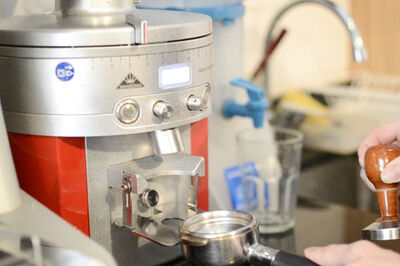
views
Vienna: The United States said military aspects to Iran's nuclear work were "increasingly apparent", as the big six world powers urged Tehran on Wednesday to cooperate with the UN atomic watchdog to help resolve such concerns.
The major powers said "the door remains open" for dialogue with Iran, but made clear the Islamic Republic must engage in substantive negotiations to find a diplomatic solution to a long-running dispute over its nuclear programme.
Their show of unity at a board meeting of the International Atomic Energy Agency (IAEA) was designed to step up pressure on Iran after their talks with the country in December and January failed to make progress.
IAEA Director General Yukiya Amano said at Monday's opening session that information his office recently received added to concerns about possible military aspects to Iran's activities.
Tehran denies Western allegations that it is seeking to develop nuclear weapons, insisting its work is solely aimed at generating electricity so it can export more of its oil and gas.
Amano voiced growing frustration at what the Vienna-based UN body sees as Iran's failure to address allegations it may be working to develop a nuclear-armed missile.
The US ambassador to the IAEA, Glyn Davies, expressed his support for Amano's comments in a speech to the closed-door meeting of the agency's 35-nation governing board.
"The increasingly apparent military dimensions to Iran's nuclear programme, including efforts by Iran to develop a nuclear warhead, intensify and lend urgency to these concerns," Davies said, according to a copy of his remarks.
He later told reporters: "We are conveying the view that Iran appears to be pursuing the scientific, technical and industrial capacity to produce nuclear weapons."
The UN Security Council has imposed four rounds of sanctions on Tehran since 2006 for refusing to freeze its uranium enrichment programme, which can have both civilian and military purposes.
Iran's IAEA envoy, Ali Asghar Soltanieh, said the United States and the European Union had "once again repeated the unfounded assertion" questioning the peaceful aims of the country's nuclear work.
Iran was fully prepared to hold further talks with the powers "for cooperation on common elements", Soltanieh said, using language that signalled no willingness to compromise over uranium enrichment which Tehran sees as its "inalienable right."
For several years, the IAEA has been investigating Western intelligence reports indicating Iran has coordinated efforts to process uranium, test explosives at high altitude and revamp a ballistic missile cone so that it can take a nuclear warhead.
Davies suggested Amano could report "promptly to the board his best assessment of whether there have been military dimensions to nuclear activities in Iran and, if so, whether he is in a position to verify they have stopped".
The joint statement from the six powers - the United States, Russia, Britain, France, Germany and China - also made reference to the IAEA's concerns over Iran's nuclear aims.
"We call on Iran to cooperate fully with the Agency ... Outstanding issues need to be resolved in order to exclude the existence of possible military dimensions to Iran's nuclear programme," it said.
The statement said two rounds of talks with Iran in Geneva in December and in Istanbul in January did not reach any result, despite the powers' practical ideas to help build confidence.
"We expect Iran to demonstrate a pragmatic attitude and to respond positively to our proposals and to our openness toward dialogue and negotiations," the statement, read out by Russian Ambassador Grigory Berdennikov, said.



















Comments
0 comment